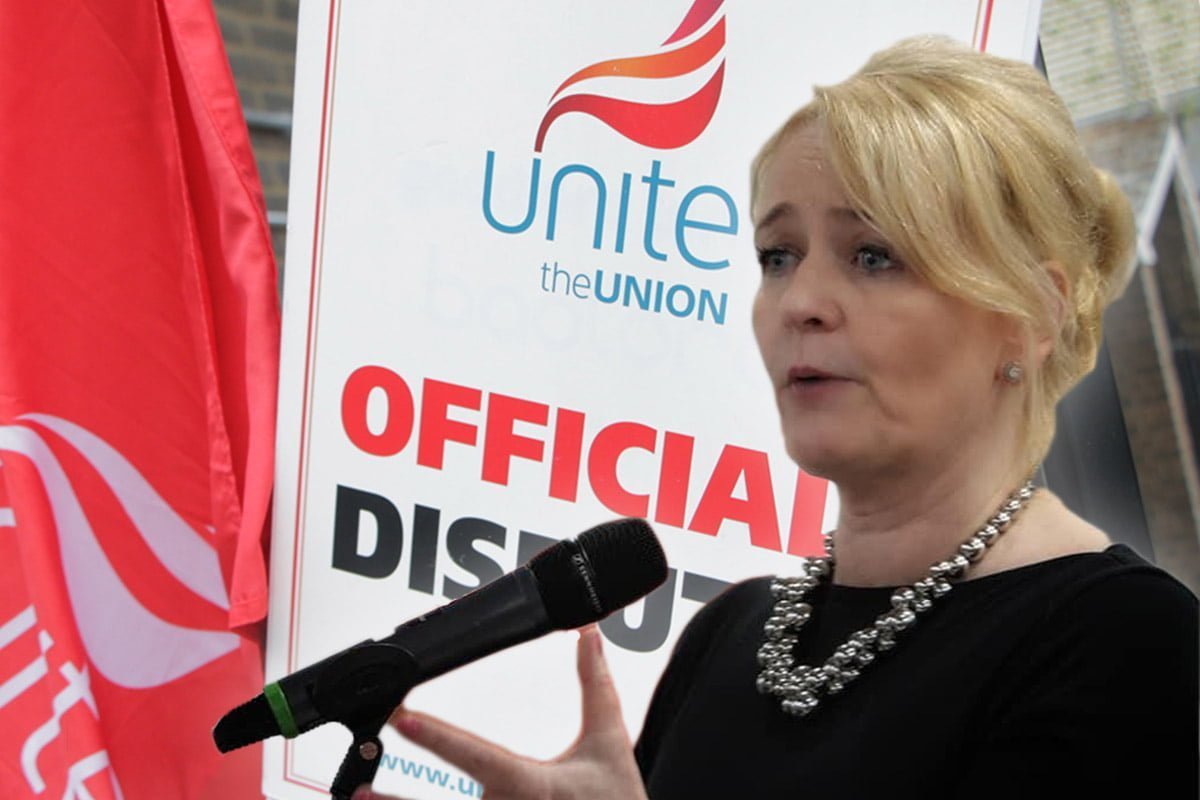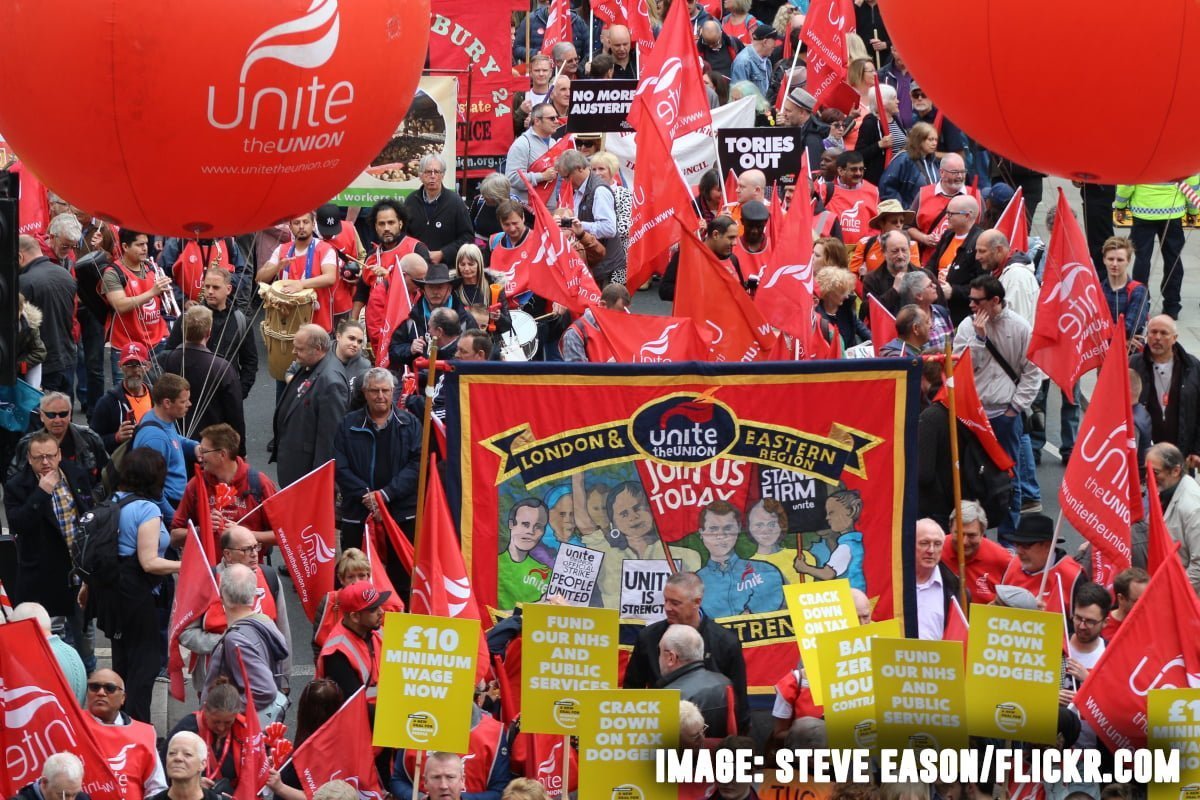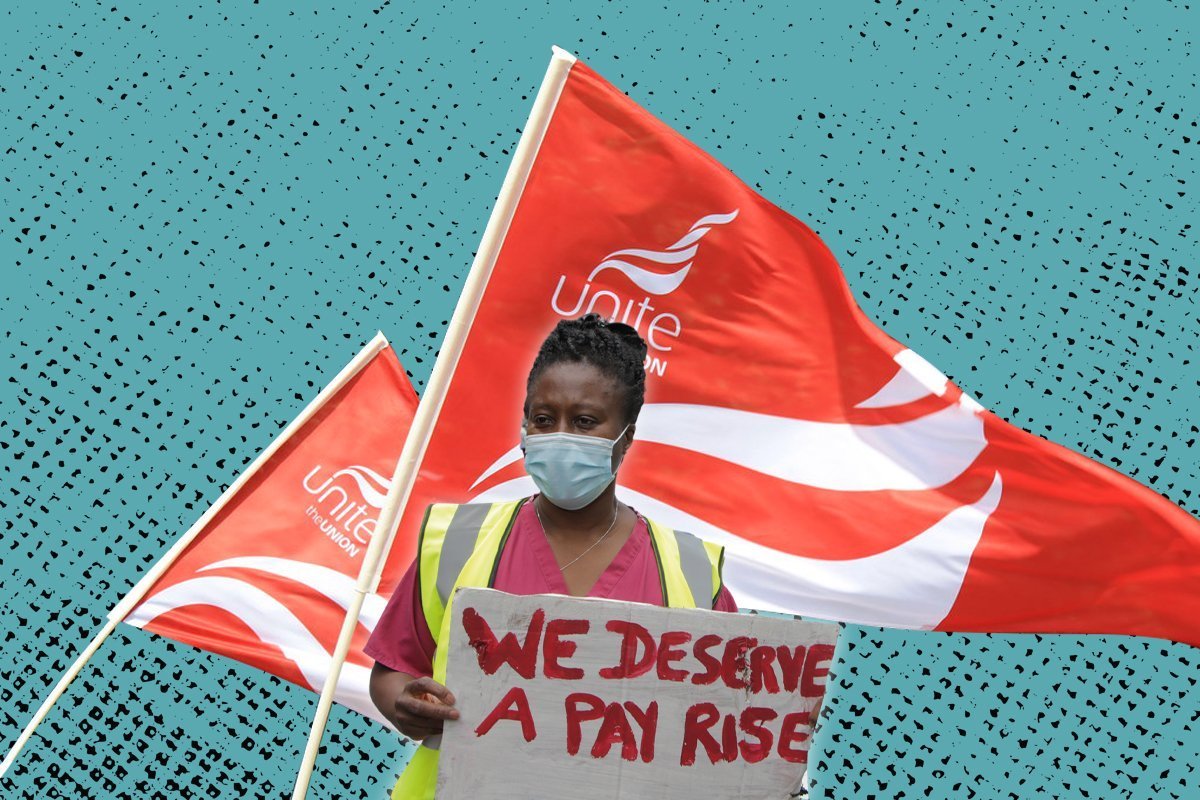The Unite Executive Committee (EC) elections have now come to a close. The newly-elected EC of one of Britain’s largest unions officially took office on 1 May.
With elections for this body only taking place every three years, and with the ongoing rebirth of the British labour movement, this election was of great importance. Although turnout remained low – between 5% and 10% for most sectors and regions – the results speak for themselves.
A majority of the EC is now controlled (although only by a narrow margin) by those candidates who are supportive of the direction the union is headed under general secretary Sharon Graham – that is, becoming a union of greater industrial militancy and organisation.
It is clear that the active layers of the union are placing their trust in those that are offering the prospect of a union that will focus on the ‘jobs, pay and conditions’ of its members. And that is seen as those who are standing behind Graham.
Militancy

All along, these elections were a battle between two sides. On the one side stood the old United Left (UL) faction – a.k.a. the ‘Members First’ slate. This faction effectively ran the union for many years under Len McCluskey, and controlled the EC until now.
On the other side was a slate put together by Sharon Graham supporters, who support the direction the union is heading in – especially when it comes to a bolder strategy of strikes to win concessions.
Although UL had more experience with running such a campaign, as well as a clear slate and programme, they were still unable to prevent the Graham slate from securing a narrow majority.
To understand why this is, we should examine the union’s history in struggle over the last ten years. The United Left leadership of Unite has overseen some big battles in its time. But as the years have gone on, it has become hollowed out.
In particular, scandals such as the retreat at Grangemouth, and the ongoing investigations into the potential collusion of union officials in blacklisting militant workers, have taken much of the shine off this faction. UL is now associated with corruption and dodgy dealing in the minds of many amongst Unite’s activist layer.
Amongst the union’s rank and file, meanwhile, the general perception of the Graham leadership so far is that it is a fighting one. The number of strikes the union has fought has undeniably risen. And some of these battles have even led to relatively significant victories, such as those of the Liverpool dockers.
In a situation where rank-and-file members are increasingly turning to action to defend themselves, such a reputation carries weight.
Antics
In the wake of the results coming out, however, the old United Left faction are reportedly now on the counter-attack.
There are reports of UL figures approaching new EC members on the Graham slate, along with independents, in an attempt to apply pressure and win them over to their camp.
It is clear from such antics that, given the slim majority held by Graham’s supporters, this bureaucratic UL faction will continue to be a thorn in their side.
To fight back, Graham and all those seeking to transform the union must base themselves on their support from the militant rank and file, and take steps to get organised as a formal tendency. This should include the formation of activist groups at regional and branch levels.
Education
Socialist Appeal supporter Arsalan Ghani also ran on the slate of Graham supporters, for the Education seat.
Although Arsalan narrowly lost, his campaign was able to raise socialist ideas to a broad audience of Unite members, particularly those working in higher education, by speaking at a number of branches.
The struggles in education have taken on a sharp importance in the recent period. Redundancies are hitting universities such as UEA and Brighton, targeting academic and clerical staff alike. A unified strike in primary and secondary schools is also now developing.
Unite members in this sector are in the firing line. Like their colleagues in other sectors, they are looking for a way out. As such, Arsalan’s campaign focused on the solutions to this crisis.
Arsalan raised the need to coordinate with other trade unions, in order to strike at the heart of the bosses’ attacks. He put forward that the union should fight for a fully-funded and publicly owned education system, run by workers and students – providing a clear socialist alternative for Unite members in education to struggle for.
He also spoke of the need to deepen the transformation within the union – tackling any corruption or class collaboration through greater democratic control of the union by its members.
Such ideas found an echo within the ranks, if not a decisive one at this stage. Nevertheless, Socialist Appeal supporters in Unite will continue to raise these and other bold demands within the union.
This includes at this year’s Unite policy congress, where a motion written by one of our supporters is set to be heard on fighting for a rising, sliding scale of wages to tackle inflation.
Fightback

The new EC will now be under pressure to deliver for those that have given them a mandate. Both the general secretary position and EC are now in the hands of this new left formation, which should give confidence to the union’s militant rank and file.
With the crisis of capitalism in Britain becoming sharper by the day, the need for a coordinated fightback by the labour movement against Sunak’s rotten government – and the bosses’ system they defend – has never been more pressing.
Unite, as one of the country’s biggest unions, is very well placed to take the lead on this. Commendably, the union has been militantly fighting local struggles, such as the Coventry bin lorry drivers’ dispute, or the more recent National Express drivers’ dispute in the West Midlands.
But behind all of these local struggles is a common enemy: the Tories and the capitalist system. So far, even under Graham’s leadership, Unite has not gone beyond isolated disputes over pay and conditions. Ultimately, what is needed is to generalise these fights into a national, political struggle against capitalism.
Unite must therefore take a lead in building for a national campaign of all the unions, fighting around a socialist programme to kick out the Tories and put workers in control of society.
This should be done with the full involvement of the rank and file, ensuring ordinary members are taking the lead in the fightback.
This means democratising the union to ensure all Unite officials are elected, subject to the right of recall, and are only taking the average wage of the members they represent. This will ensure the best class fighters are leading the union.
An important victory has been won for all those struggling for a fighting labour movement. But the struggle is not over yet.
The forces of Marxism will continue to play a role in this struggle – not just in Unite but across the labour movement. We call on all workers who want a militant, democratic, and socialist labour movement to join us in this task.






